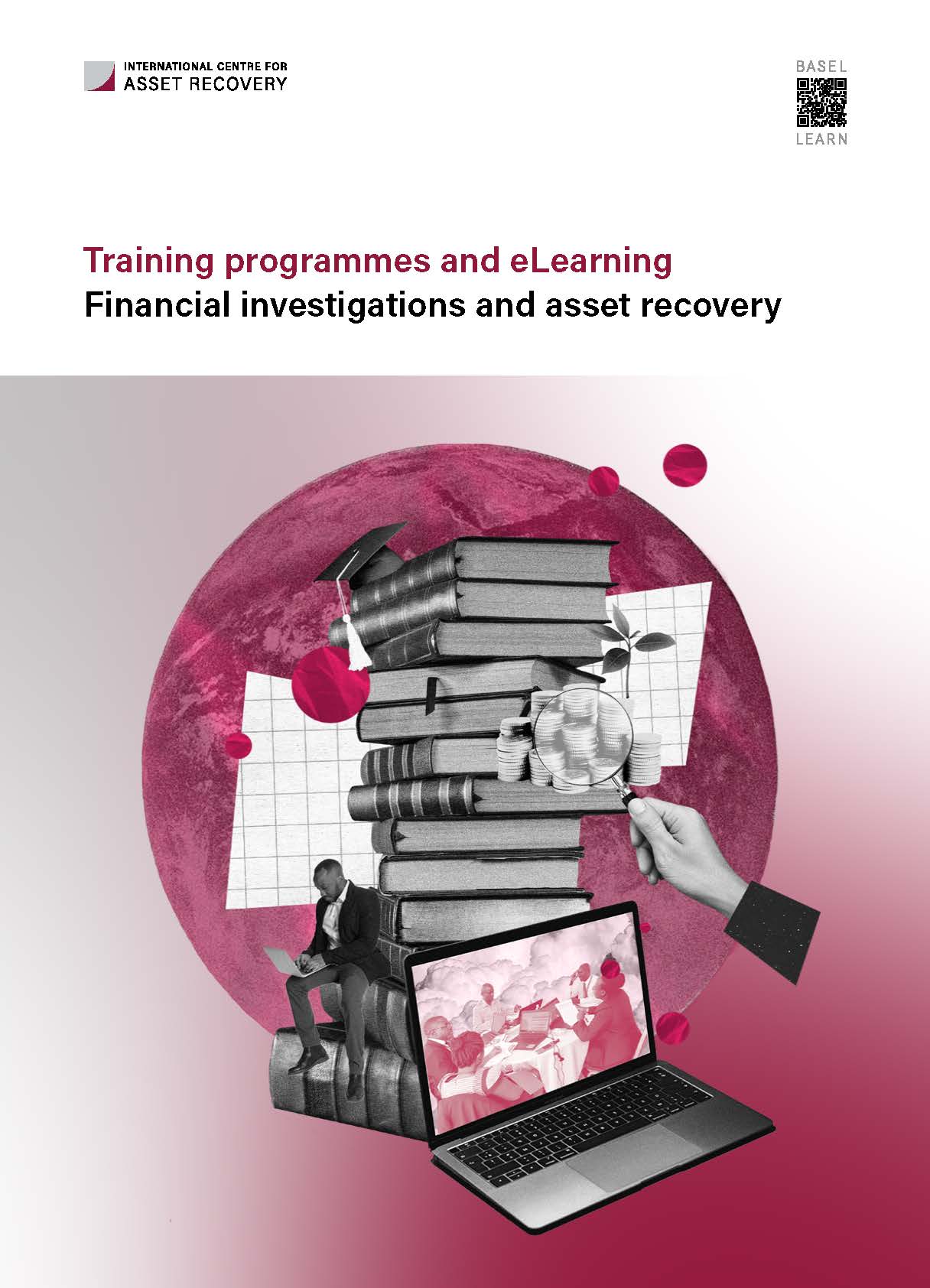Training programmes
High-impact training for government agencies on financial investigations, asset recovery and more
Through customised and interactive training courses, the expert training team of the Basel Institute's International Centre for Asset Recovery (ICAR) helps government agencies develop the skills to investigate and prosecute financial crime and recover stolen assets.
ICAR’s unique training concept is based around:
- Hands-on exercises and interactive group tasks
- Practical tools and skills you can use straight away
- Country-specific course material for maximum relevance
- Fully adapted to the local context, laws and institutions
- Fast and fun: gain advanced skills in just a few days
- Learn to use the latest technologies
Participants work together on real-life tasks, such as “following the trail of the money” and gathering and preparing evidence in simulated investigations. This group dynamic helps facilitate inter-agency cooperation.
Over 4,000 practitioners from FIUs, law enforcement, prosecuting and judicial authorities in more than 40 developing and transition countries have benefited from ICAR workshops over the last 18 years.
What sets our training apart?
An independent qualitative study by Fondazione Safe confirmed the effectiveness of our approach as “driving meaningful shifts within the institutions of partner countries, and enhancing their effectiveness in addressing corruption and related crimes”. The following video highlights what makes our training programmes special.
Tailored training for government institutions
ICAR’s flagship training courses are developed at the request of partner agencies. They are customised to the local and institutional frameworks, as well as the needs of participating agencies. ICAR delivers training to practitioners in partner institutions across all regions, with programmes adjusted to reflect different institutional contexts and levels of operational capacity.
Our target audience is professionals involved across the asset recovery chain, from the investigation of corruption and money laundering to the tracing, seizure and recovery of assets.
Our programmes feature intensive, hands-on group work and are generally designed to be delivered in person. However, certain modules may also be suitable for virtual delivery while maintaining a comparable level of interactivity.
Browse our current courses below or download our latest training brochure:
- English: Training programmes – Financial investigations and asset recovery
- Español: Programas de capacitación – Investigaciones financieras y recuperación de activos
- Français : Programmes de formation – Enquêtes financières et recouvrement d’avoirs
- Português: Programas de formação – Investigações financeiras e recuperação de activos
Current programmes at a glance
Financial Investigations and Asset Recovery
How to use criminal investigative techniques to gather evidence in order to prove different elements of money laundering and corruption offences and initiate an asset recovery action. This is our signature training workshop, laying the foundations for other courses. Learn more.
Corruption in Infrastructure Projects and Procurement
How to recognise and investigate potential corruption schemes and fraud in public procurement and infrastructure projects. Learn more.
Offshore Structures and Mutual Legal Assistance
How to navigate the world of offshore banking/legal structures in order to understand how corporate structures can be misused to conceal beneficial ownership. This course also covers how to make a successful request for mutual legal assistance (MLA). Learn more.
Money Laundering Using Crypto Assets
How to detect, investigate and counter criminal use of cryptocurrencies and other virtual assets to launder the proceeds of crime, and trace and recover such assets. Learn more.
Interviewing Skills for Financial Investigators
How to plan and conduct interviews to obtain more detailed and accurate financial information from suspects, witnesses and victims. Learn more.
Non-Conviction Based Forfeiture
How to use judicial procedures to forfeit or confiscate criminal assets without the need for a specific criminal conviction. Learn more.
Illicit Enrichment
Understanding the legal concept of illicit enrichment and applying specific tools and techniques to investigate and prosecute the offence successfully. Learn more.
Follow the Money in Environmental Crime Cases
How to leverage financial investigative techniques to prove environmental crime and associated money laundering offences and initiate asset recovery actions. This course is specifically designed for practitioners handling environmental crime and related cases. Learn more.
Advanced Operational Analysis
How to conduct complex operational analysis, from receipt of a suspicious transaction activity or report to dissemination of the analysis to law enforcement authorities. Learn more.
Train-the-Trainer (TTT)
A series of four training workshops designed to develop 4–5 candidates as Certified Trainers in the Financial Investigations and Asset Recovery programme. Learn more.
Regional Training
Enhancing the technical skills and cross-border cooperation of regional authorities to better handle concrete money laundering and corruption cases. Learn more.
Training team
Our ICAR training team consists of international money laundering and asset recovery specialists, including former prosecutors and investigators with in-depth knowledge and long-standing practical experience. With our assistance and mentorship, participants are taken through complex, simulated investigations with their maze of financial transactions.
Our exposure to the laws, legal systems and practices of more than 40 countries where we have worked, enables us to share not only international best practice but also country-specific information.
Other training and learning opportunities
ICAR training programmes are designed for public-sector agencies. If you are an individual practitioner looking for training and education on financial investigations, asset recovery and related topics, see the options below.












